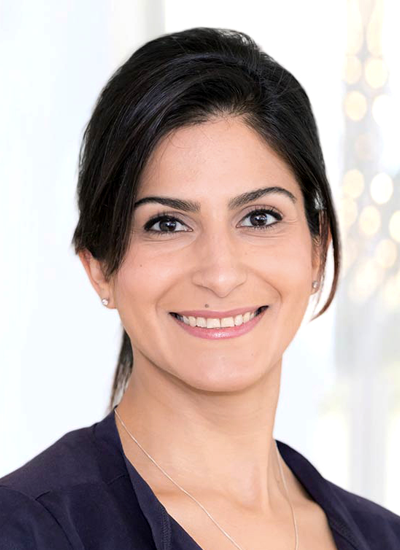Alumni portrait - Mariam Kaynia - NTNU Alumni
Mariam Kaynia
Associate Partner at McKinsey & Company
PhD in Wireless Communications, NTNU
MSc in Electrical Engineering, NTNU
We asked Kaynia some questions about her work and her connection to NTNU.
 What is your current position?
What is your current position?
– My current position is Associate Partner at McKinsey & Company. The way I came to this position started during my studies. I found out about an internship at McKinsey & Company, so I sent in an application and I got accepted. My time as an intern was really exciting and I learnt a lot! In particular, I came to understand how my education could be applied in productive ways. After finishing my internship I decided to go back to finish my academic career. I did my MSc (one in the USA and one at NTNU) and a PhD at NTNU. After finishing, I went back to McKinsey & Company, first as a Junior Associate. Since then I’ve worked my way to the position I hold today, as Associate Partner.
What is the best part of your job – and what is the most challenging?
– The best part is the feeling of being at the forefront, where we can contribute to shape the industry of tomorrow. That is really motivating! I get to work with a broad range of tasks, and by being challenged to solve unsolved problems I’ve learned and grown a lot, both professionally and personally. However, what is the most exciting is also the most challenging. It’s not easy to work on unsolved problems, so I’m still learning every day.”
What are the most important skills or expertise you have taken from your time at NTNU?
– I think it must be what I learnt from working on my PhD. As a researcher, you work much like I do today – you have to take creative approaches to find solutions to unsolved problems. The expertise I value most is that I have become comfortable working with problems that neither I nor anyone else have solved before. Working on complex issues is the best form of learning.
How have you kept in touch with your academic community after finishing your education?
– I’ve been lucky to be able to maintain a strong connection to my former academic community at NTNU. I have kept in touch by helping with strategic efforts at the faculty and through my role as an Associate Professor II. This role means I am still affiliated with my previous study group. I have been a guest lecturer and I sit on different committees and boards, so I am definitely still in touch. And I have just been elected chair of the NTNU Alumni Germany Board, where we are establishing a network for former NTNU students who are now located in Germany. The aim is to establish a stronger link between NTNU research and industry, students and work life, and between Norway and abroad.
Can you think of something that you wished you were told as a new student? Do you have any tips?
– I wish someone had told me about all of the great possibilities that are out there in the working world. When you make choices between different study programmes or specializations, many students get the feeling that they are closing doors on other opportunities. But you won’t necessarily have to pursue exactly what you study; studying teaches you above all to learn. This gives you expertise and skills you can use in many different ways. Education itself is more important than the specific degree or specialization you choose.
